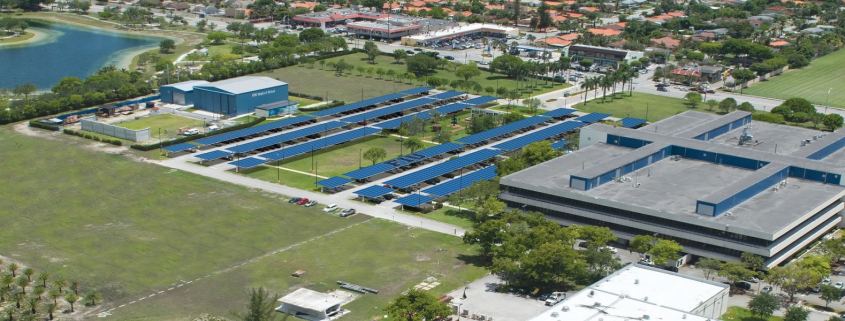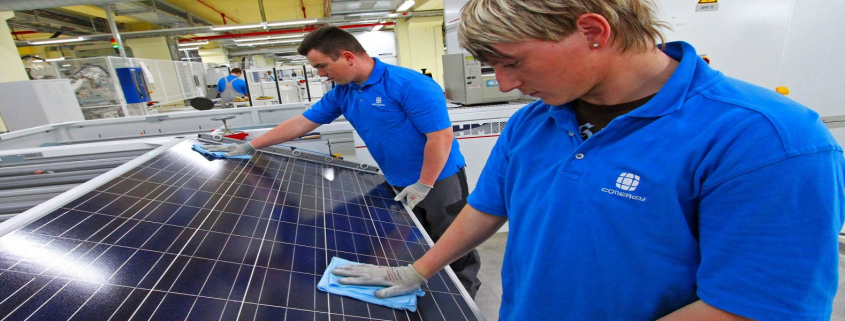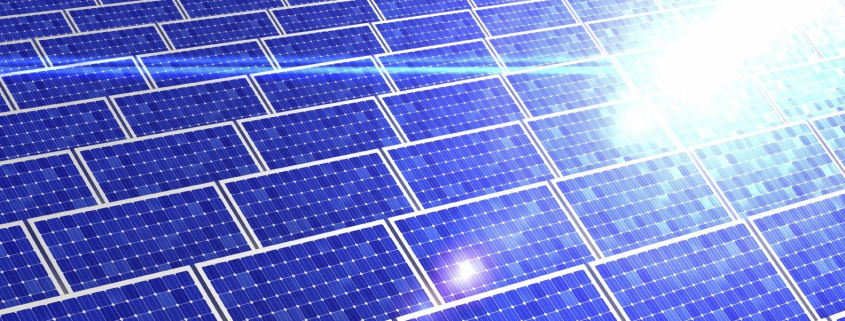Florida Power & Light Co. last Wednesday proposed a pilot program that would build community solar energy projects — some with panels spanning the size of half a football field — in select cities including Fort Lauderdale and West Palm Beach.
The projects would be financed by customers who choose to give FPL $9 per month, because the company would not seek state approval to be compensated for the cost of construction. Customers who contribute would still pay the same for their electricity, since energy produced from the projects would be fed into the broader grid, not directed specifically to funders, FPL said.
The new “voluntary” program would differ from an earlier FPL solar rebate program, where the company gave rebates to select customers to install solar on their rooftops but all FPL customers paid for those installations through their electric bills, said FPL President Eric Silagy.
“No one has to pay for this if they don’t want to,” Silagy said.
But some in the solar business questioned the financing model that seems to have FPL coming out as the winner.
“Basically, what they’re saying is ‘A lot of people want solar. So you give us $9 a month and we’ll build it, and you get nothing out of it but a feel-good,’ ” said Wayne Wallace, president of the Florida Solar Energy Industries Association.
Wallace rejected FPL’s claims that rooftop solar is less cost-effective than larger community solar projects.
“Investor-owned utilities don’t want to see a lot of people putting solar on their roofs, because it cuts into their revenues,” said Wallace. For consumers, rooftop solar can be very cost effective by slashing the price of their electric bills, he said.
FPL is the largest solar energy producer in Florida, but it produces only about 110 megawatts of electricity from the sun yearly — or about one-tenth of 1 percent of all its power, said Silagy.
The company faces huge hurdles to ramp up further, he said, because state regulators are required to approve utility projects with the lowest cost of generation. Solar now is more expensive than natural gas-fired plants or nuclear plants.
That’s why FPL came up with this pilot program, seeking creative ways to add solar capacity, he said. The pilot projects proposed would build up to 2.4 megawatts of solar generation over three years.
“If it’s successful and we have a lot of customers interested, we can go bigger,” Silagy said.
FPL aims to start the first community solar projects in early 2015 and is looking to build in Fort Lauderdale, West Palm Beach and Sarasota.
“The City of Fort Lauderdale is excited about the possibility of partnering with FPL to bring renewable energy generation to our neighbors,” said City Manager Lee Feldman in a news release.
But other smaller-scale solar options also are open to consumers, with other financing terms.
“What they are doing is great for the environment. We all should move toward solar,” said Joe Spector, vice president of operations for Ygrene Florida, a company negotiating with Broward County to develop a Property Assessed Clean Energy or PACE program.
PACE lets property owners finance solar on their rooftops without paying any upfront cost and then, repay the financing over years with their property taxes.
“In the PACE program, the person who pays is the one that gets the direct financial benefit” by using their own solar to replace energy from the grid and slashing their electric bills, said Spector.
FPL said their new program will help measure the true interest of customers in solar energy. Many customers now say they want solar but may not be willing to pay extra for it, said Silagy.
Yet some see the pilot program as a “flawed referendum” on solar.
“If they don’t get people willing to donate $9 a month, it doesn’t necessarily mean that there’s no huge interest in solar,” said Michael Wallander, a principal in EcoCity Partners, which also is negotiating with Broward for PACE programs. “People want solar. But many want to generate their own.”
FPL said it would make no profit on the three-year pilot program. It plans to donate $200,000 each year from program funds to nonprofits in Florida. The nonprofits would be selected by customers who choose to contribute to the program.
Regulators at the Public Service Commission must give the go-ahead for the pilot program. Hearings are expected later this year, and if approved, FPL hopes to start in January.
FPL’s parent company, Juno Beach-based NextEra Energy is the largest producer of sun and wind energy in North America.
Source: SunSentinel



